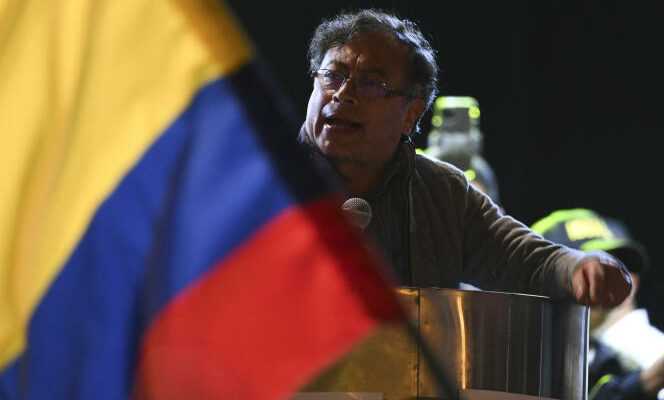Six years ago, Colombia signed a peace agreement with the Marxist guerrillas. For the first time in its history, it could now elect a leftist president to succeed Ivan Duque. Gustavo Petro, 52, was a guerrilla in his youth, deputy, senator and mayor of Bogota. He tops the polls for the first round of the presidential election this Sunday, May 29, with just over 40% of voting intentions.
You are a candidate for the Historic Pact, a coalition of parties that call themselves left. But you refuse this label…
Seen from Europe, I am obviously from the left, from the new left. But the answer does not make much sense, as our societies and our political agendas are so different. In Europe, capitalism is consolidated whereas here, in Colombia, economic structures and political mentalities are pre-modern. In France, I would probably be in favor of retirement at 60. But here, the vast majority of my compatriots are not entitled to anything: the challenge is therefore to create a system which guarantees them a small pension. In Europe, my program would be qualified just as centrist. But in a country like Colombia, the center is a revolution.
You were once close to former Venezuelan President Hugo Chavez. What lessons do you draw from his Bolivarian Revolution?
A quarter of a century after the fall of the Chilean Salvador Allende in 1973, Hugo Chavez had the merit of reminding us that peaceful social change was possible in Latin America. Our continent had just gone through a period of dictatorships, repression or even, in Nicaragua, of armed revolution. Hugo Chavez marked the beginning of a “Latin American spring”. But he made the big mistake of linking his social program to oil revenues. When oil prices fell, the Venezuelan model collapsed. And democratic principles have been forgotten. Marked by their dependence on raw materials and their authoritarian drift, the Venezuela of Nicolas Maduro and the Colombia of Ivan Duque are more alike today than it seems.
Corruption also contributed to the failure of the Venezuelan system, right?
Yes. “Easy” rentier economies, such as oil or cocaine, are more corrupt and more violent than countries with productive economies. Social control is stronger in the latter: when the population lives from its work, it does not let its tax money be stolen. This is one of the reasons why we must abandon our so-called “extractive” development model to develop a productive model and build a knowledge economy.
You have 58.25% of this article left to read. The following is for subscribers only.
